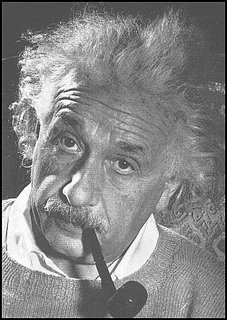Milagro Beanfield War - my review

Que Viva Snuffy Ledoux!
I read this book 35 years ago for the first time when I was fifteen years old. It remains one of my all time favorites. A friend recently pointed out that I was like Amarante Cordova. I always considered myself to be more of a Jose Mondragon. After re-reading Milagro Beanfield War, this timeless piece of literature ranks among the best stories I have ever read and, why I consider it such a great demonstration of artistry and craftsmanship.
Milagro Beanfield War is an enchanting story, told by a man who has a deep and abiding respect for the people he wrote about. His descriptions of the colorful characters and the beautiful landscapes reveal a man who is faithful to describing northern New Mexico Latino culture with clarity and sensitivity to all their quirky nuances.
Nichols reminds me why I love the northern part of the state so much. The rugged terrain is as breath-taking beautiful as its hard-scrabble inhabitants. I am convinced their vibrant culture and world view has been shaped by the land in which they live. Their ingenuity and tenacity are not as caricatured as you might be given to conclude according to Nichols' descriptions. Their bravado, sense of pride, chutzpah are not an exaggeration at all. Moreover, extraordinary things do happen up there and what is even more unusual is that is is not seen as anything out of the ordinary at all. Nichols does such a fantastic job of describing the terrain that he reminds me why I love Northern New Mexico - Taos in particular - so much.
Plainly put, this story is entertaining, comical and it sheds light on yet another group of Americans whose peculiarities spice up an already delicious story.
I felt a connection to all of the characters. However, if pressed to choose one, I believe my favorite would be the immortal Amarante Cordova who buys bullets for his antique .45 with food stamps.
Aside from Pacheco's huge, white pet pig that continually escapes and wreaks havoc in Milagro, the cast of characters include;
Joe Mondragon, the sawed-off banty rooster. The protagonist who unwittingly starts the war when he decides to irrigate his little bean field - of course the symbolism should not be wasted here as beans cause gas and Joe's little field caused a big stink.
Bernabe Montoya, the tired though politically astute sheriff whose comic-tragic life is measured by making mountains out of mole hills and mole hills out of mountains,
Seferino Pacheco, the illiterate old man who can nonchalantly critique Steinbeck, Hemingway, F. Scott Fitzgerald, Juan Ramon Jimenez, Platero, Asturias, Garcia Lorca and Pablo Neruda but spends the lions' share of his time haplessly chasing down his wayward, errant pet pig,
Onofre Martinez, the one armed enigma who lost his arm to a fleet of butterflies and whose claim to shame is marked by having a son become a state police officer,
Charlie Bloom, the Harvard Lawyer cum honorary Chicano and publisher of a little news paper called 'The Voice of the People,'
A host of bad guys led by the evil, Ladd Devine III, an equally pugnacious, little white man whose size belies his ambitions, and
the women of Milagro who range from a pebble-tossing granny to loyal, devoted and equally nutty, delightfully powerful women.
These characters represent the tapestry of Milagros' comedic bravado and cloaked angst with its temperaments and dispositions.
I have read that some people do not like Nichols' depiction of the dominant culture and actually take exception to what has been described as the 'white man's burden.' Such detractors are really missing the point because the story is about a nostalgic look at a culture and way of life that is quickly waning. As a case in point, Onofre Martinez articulates the point quite eloquently (p 150)when someone makes an off handed comment about gringos;
"'Wait a minute!' Onofre Martinez stammered excitedly, emotionally placing his hand on Ray Gusdorf's shoulder, 'This is my neighbor, and he is a gringo, not even a little bit coyote [half-breed:]. But he's been in the valley as long as I remember, and I consider him to be of my people. And that white man over there told us these things about the dam and the conservancy and showed us the maps, I consider him of my people too, even though he is a lawyer, even though he speaks funny Anglo Spanish you can hardly understand. But I believe he at least tries to speak the truth,and a lawyer who does that should get a big gold medal to hang around his neck. I don't consider Nick Rael to be of my people because he works against my interests... So, I don't believe this is a brown against white question. This is a only one kind of people against another kind of people with different ideas. There are brown people and white people on both sides...People are people...The brown people and white people on our side are better people because they are on the correct side, that's all..."
While many of the antiheroes in this story happen to be Anglo and the protagonists are mostly Latinos, the story would not change if the protagonists happened to be a group of backwater whites who were facing similar circumstances. Consequently, I don't really understand why someone, anyone would get ruffled about a white author writing about bad white guys. Apparently, Lonesome Dove doesn't evoke the same sort of bristled criticisms and, for that reason, I find the attacks on John Nichols unwarranted.
John Nichols has created a masterpiece, attentively woven with its muted colors of incredulity, tempered fatalism and brilliant splashes of hope.
I sincerely hope his magnum opus is not discounted because he has the temerity to celebrate the true essence of what is unique about being an American; diversity.
Finally, If you like magical realism, this book is perfect for you.
ps: There's nothing wrong with being like Amarante Cordova - although I still consider myself more like Joe Mondragon. And, hey Tony! You are crazier that Pacheco's pig!
Labels: Corruption, Humor, Latino Culture New Mexico, Magical Realism, Social Justice, Southwest, Spirituality
















